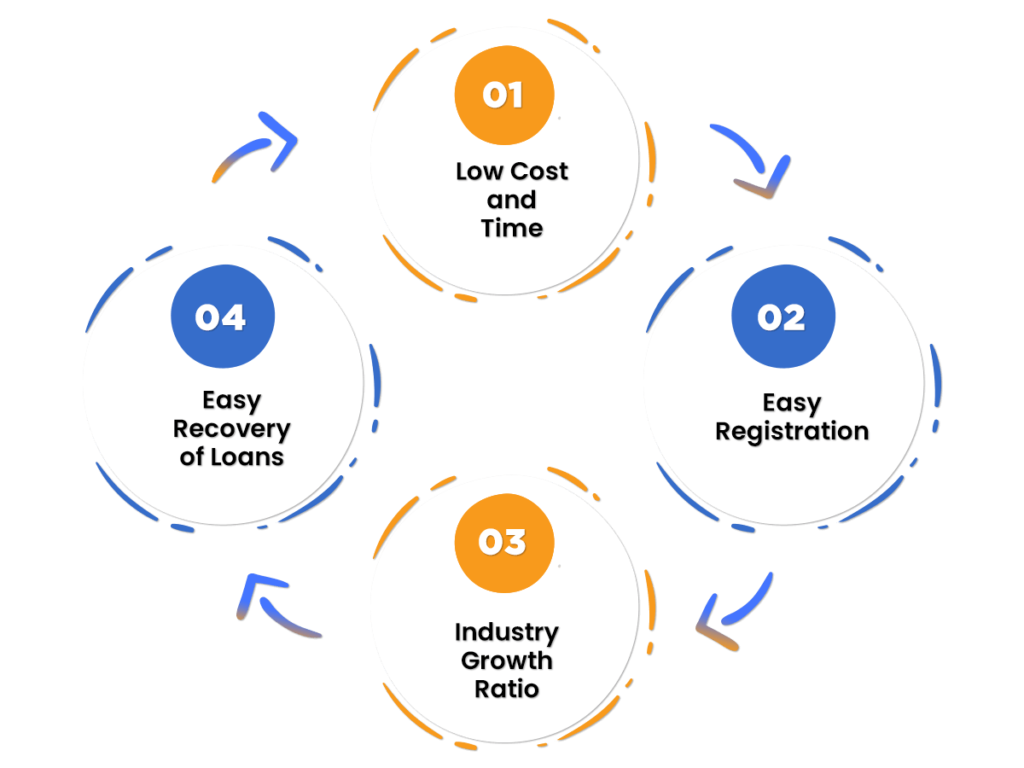NBFC Company
NBFC (Non-Banking Financial Company) is a widely engaged in financial activities like secured and unsecured loans, investments, Marketplace lending or financial Information service provider or any other business objectives as defined under section 45-IA of the RBI Act. 1934 and Companies Act 2013. Any entity who wants to start a loan or investment business is required to obtain Certificate of Registration (COR) from RBI. The RBI has simplified the NBFC Regulation and now the licensing process is much easier than it was before.

Types of NBFC
Before a company applies for NBFC, it is important to determine the type and category of the NBFC license. The following are the types of NBFC:
-
Asset Finance Company
Company whose principal business is financing physical assets such as “Automobiles, Tractors, Generator Sets, Lathe Machines, Etc.”
-
Investment Company
Any company which is a financial institution and is carrying out its principal business as the acquisitions of the securities (stocks/bonds/shares/other financial securities) is an investment company.
-
Loan Company
Any company which is a financial institution and its principal business is providing finance whether giving loans or advances other than its own.
-
Infrastructure Finance Company
It is a non-banking finance company deploying 75% of its total assets on infrastructural loans and has a minimum net owned fund of Rs. 300 crore.
-
Systemically Important Core Investment Company
It is a non-banking finance company with an asset size of over Rs. 100 crore. It accepts deposits from those businesses which acquire shares and securities.
-
Infrastructure Debt Fund
It is a non-banking finance company that facilities the flow of long-term debts into infrastructure projects. It raises resources through the issue of rupees or dollars with the denomination of bonds which has a minimum of 5 years as its maturity period.
-
Non-Banking Finance Company (Micro Finance Institutions)
It is the most popular type of NBFC. It is a non-deposit taking NBFC that is engaged in microfinance activities.
-
NBFC Factors
It is a non-deposit taking NBFC that is engaged in the principal business of factoring.

How Can You Register As NBFC:
- Your company should be registered under the Companies Act 2013.
- A company should have a minimum net owned fund of Rs. 2 crores or more.
- At least one director of the company from the same background should be there.
- You should have a good CIBIL score in order to register under an NBFC.
- Visit the RBIs official website and fill in the application form.
- Application form should be submitted with all the required documents.
- A CARN number will be generated once you have submitted the application form.
- You are then required to send the hard copy of the application form to the regional branch of RBI.
- When the application is checked and verified, the license will be provided to the company.
Documents Required For NBFC Registration
1. Company corporation certificate
2. Brochure of the company
3. Detailed information of the management
4. Office location documents
5. Certified copy of the Memorandum of Association (MoA) Article of Association (AoA)
6. Duly signed list of director’s profile
7. CIBIL/credit reports of the company should be attached
8. A copy of the board resolution certifying that the company has not carried NBFC activity and will not carry out any until the registration from RBI is granted.
9. A resolution on “Fair Practice Code” is to be passed and a certified copy of the same has to be submitted.
10. Certificate by the statutory depositor that the company is holding no public deposit and does not intend to do so should be submitted.


11. Certificate specifying owned funds to be submitted.
12. Bank information has to be furnished.
13. Self-certified copies of the bank statements and income tax returns are required.
14. Information related to the company’s future plan (next 3 years) along with income statement, cash flow statement and balance sheet.
15. Audited balance sheet along with a profit and loss statement of the preceding 3 years has to be submitted.
